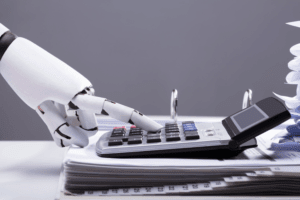
It should be clear how important https://www.foretseche.re/2023/11/13/frequently-asked-questions-about-proadvisor/ internal control is to all businesses, regardless of size. An effective internal control system allows a business to monitor its employees, but it also helps a company protect sensitive customer data. Consider the 2017 massive data breach at Equifax that compromised data of over 143 million people.

Business letter templates

In modern systems, technology can enforce the separation of duties by restricting user permissions. The internal control process in accounting is not a one-time project but HOA Accounting rather an ongoing cycle of assessment, implementation, monitoring, and improvement. When properly executed, this process creates a dynamic control environment that evolves with the organization while consistently protecting assets and ensuring financial reporting integrity.

Analyst Reports
Discover Diligent Internal Controls Management and ACL Analytics — and request a demo today. Detective controls are the controls that attempt to detect or identify errors or fraud. Moreover, the auditor has to trust the internal control internal control accounting definition system in auditing since it becomes practically impossible to conduct a check on thousands of transactions maintained.

Internal controls and process improvement
- Hence, applying controls becomes a necessity to protect the company’s cash.
- Every financial transaction must be recorded with two equal credit and debit entries, ensuring the accounting equation remains balanced.
- IT Dependent Manual Controls are similar to manual controls as they rely on a manual process from personnel but differ as a portion of the control requires some level of system involvement.
- These controls are implemented to protect assets, maintain the accuracy of financial records, prevent errors and irregularities, and ensure compliance with relevant laws and regulations.
- Examples include account reconciliations, internal audits, variance analysis, and transaction reviews.
- ‘Control activities’ means ensuring that the proper controls are in place and using accounting systems and automation to verify that controls are functioning as intended.
- Different organizations face different types of risk, but when internal control systems are lacking, the opportunity arises for fraud, misuse of the organization’s assets, and employee or workplace corruption.
An internal control system also assists all stakeholders of an organization to develop an understanding of the organization and provide assurance that all assets are being used efficiently and accurately. The control environment sets the organizational tone, influencing employee attitudes toward control measures. A strong control environment features a clear structure, defined roles, and a commitment to ethical conduct.
- There are several myths about internal controls that are worth clearing up.
- A) Explain internal control and internal checkb) Explain the importance of internal financial controls in an organisationc) Describe the responsibilities of management for internal financial control.
- Proper record-keeping supports both prevention and detection of errors or fraud.
- Proper accounting records are used to create the financial statements that the owners use to evaluate the operations of a company, including all company and employee activities.
- So, Individuals working in groups can edit the other management information or financial data.
Management override

These statistics show a clear link between internal controls and company success. When put in place well, these controls affect all parts of an organization. This makes companies stronger against financial errors and wrongdoings, laying the groundwork for growth and trust from stakeholders.
- Internal controls foster trust and reliability in financial and operational systems.
- In modern systems, technology can enforce the separation of duties by restricting user permissions.
- The internal auditors and external auditors of the organization also measure the effectiveness of internal control through their efforts.
- Preventive controls are proactive measures designed to stop errors or fraud before they occur.
- The purpose of internal controls is to ensure the integrity, reliability, and accuracy of financial and operational information within an organization.
- Frameworks such as the Committee of Sponsoring Organizations of the Treadway Commission (COSO) provide models for evaluating and enhancing these systems.
